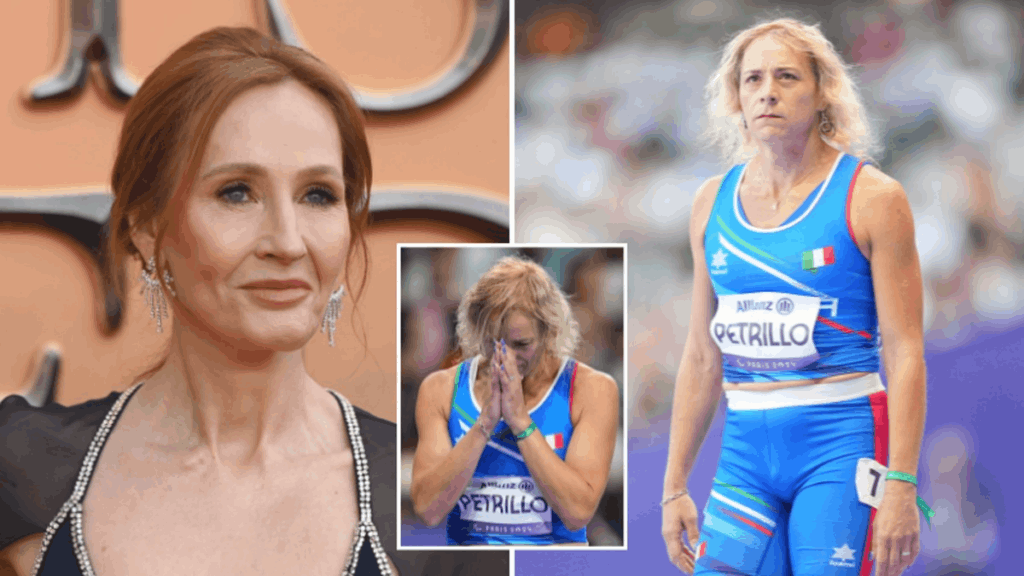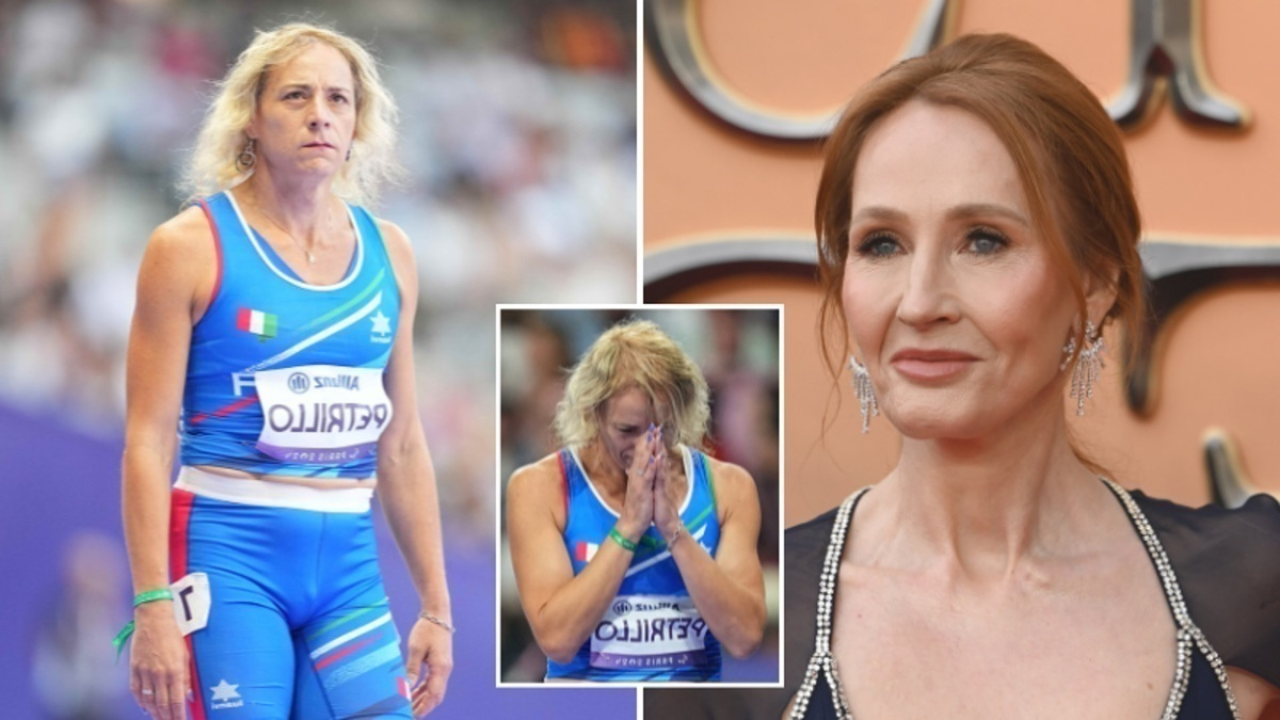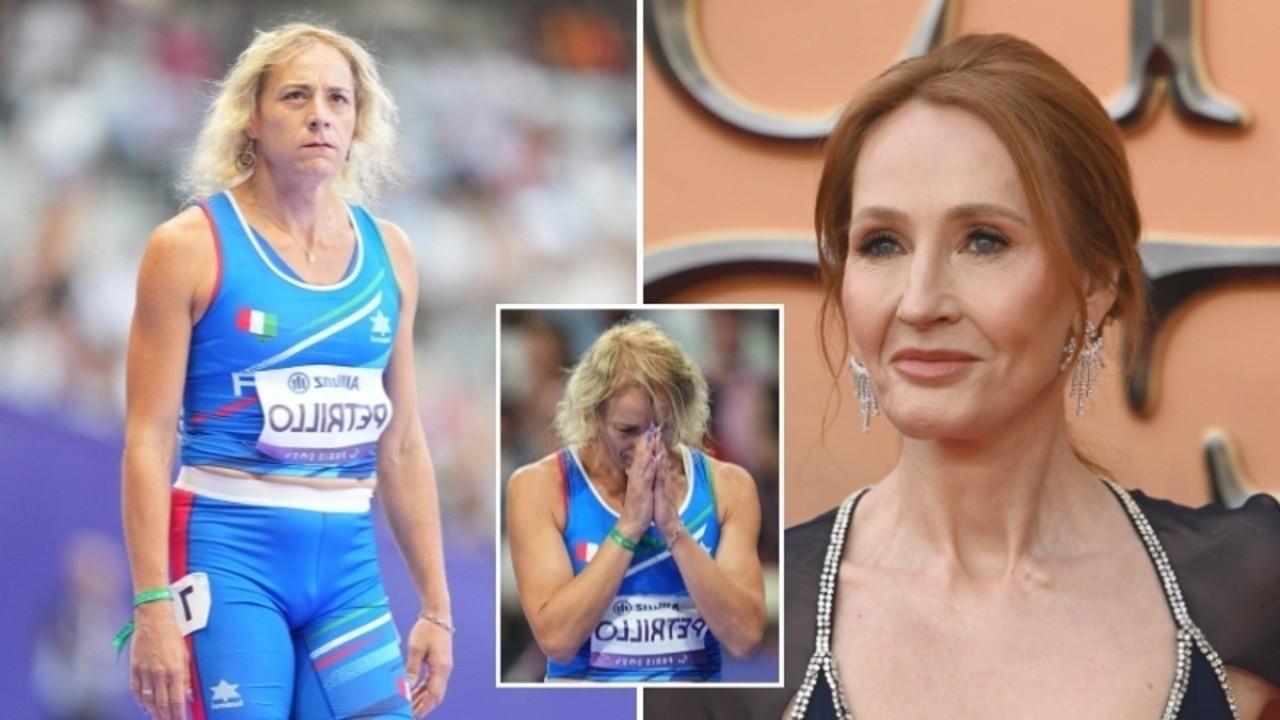
J.K. Rowling has once again found herself at the center of a media storm, this time after calling transgender Paralympian Valentina Petrillo a “cheater” in a fiery defense of women’s sports. The renowned Harry Potter author’s comments, which were made during a recent interview, have ignited a wave of controversy, with many critics accusing her of transphobia, while others argue that she is simply standing up for fair competition in women’s athletics.

Rowling, who has become a polarizing figure in recent years due to her outspoken views on gender and sex, spoke candidly about her concerns regarding the inclusion of transgender women in women’s sports. “I believe in fair competition, and when someone who has gone through male puberty competes in women’s sports, it creates an unfair advantage,” Rowling said. “Valentina Petrillo is a cheater, and her inclusion in the Paralympics is a disgrace to the women who have to compete against her.”
Valentina Petrillo, a groundbreaking athlete who made history as the first openly transgender woman to compete in the Paralympic Games, has been a champion for trans visibility in sports. Petrillo, who was born male, transitioned later in life and has since become a role model for many in the LGBTQ+ community. However, her participation in women’s sports has sparked debate, with some arguing that her physical advantages from male puberty give her an unfair edge over cisgender female athletes.

In her interview, Rowling went on to say, “Women’s sports were created to give women a fair chance to compete, and allowing individuals who were born male to participate undermines everything we’ve worked for. It’s not about hatred; it’s about protecting the integrity of women’s competition.”
The backlash to Rowling’s remarks has been swift and intense. Many in the LGBTQ+ community and their allies have condemned her as transphobic, accusing her of perpetuating harmful stereotypes about transgender athletes. “J.K. Rowling’s comments are dangerous and harmful,” said Sarah Thompson, a transgender rights activist. “To call someone like Valentina Petrillo—a woman who has worked incredibly hard to achieve her goals—a cheater is not only disrespectful but perpetuates the idea that trans people do not belong in society.”
Others, however, have come to Rowling’s defense, arguing that she is raising valid concerns about fairness in sports. “It’s not about transphobia; it’s about ensuring that women’s sports remain fair and competitive,” said Dr. Richard Hayes, a sports science expert. “Transgender women who have undergone male puberty may still have physical advantages, and we need to find ways to address that without excluding anyone. It’s a complex issue, and we need to have a discussion about it.”

Petrillo herself has responded to the controversy, maintaining that she is competing in women’s sports because she identifies as a woman and has the right to do so. “I’ve worked hard to get to where I am, and I will not be silenced by those who want to question my place in sports,” Petrillo said in a statement. “Transgender athletes belong in the sports world just as much as anyone else. My goal is to inspire others and show that being true to yourself is the most important thing.”
The issue of transgender athletes in women’s sports has been a divisive topic for years, with many countries and sports organizations still grappling with how to create fair competition while ensuring inclusivity. The International Olympic Committee (IOC) has guidelines in place that allow transgender women to compete in women’s events, provided they meet certain criteria related to hormone levels. However, the debate over whether these guidelines are sufficient to ensure fairness continues to be a contentious one.
J.K. Rowling’s latest comments have reignited the conversation and have once again placed her at the heart of a cultural divide. While some have praised her for speaking out on behalf of women’s sports, others see her as out of touch with the realities of gender identity and inclusion. Regardless of where one stands on the issue, it’s clear that this is a debate that is far from settled, and J.K. Rowling’s controversial statement is likely to continue making headlines for some time to come.

